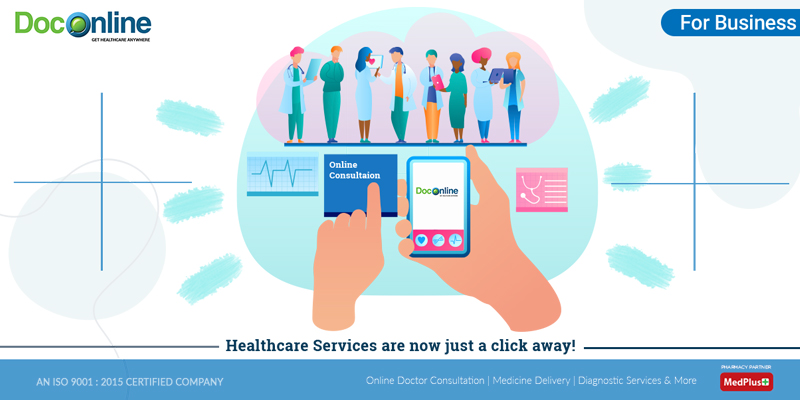The Future of Medication: Discovering Subscription Based Healthcare Designs
The Future of Medication: Discovering Subscription Based Healthcare Designs
Blog Article
The Rise of Subscription-Based Healthcare and Its Effect On Person Care
As medical care progresses, the subscription-based model is gaining grip, guaranteeing to transform patient treatment by providing predictability and ease of access. The possibility for these designs to reshape medical care shipment elevates pressing inquiries regarding their long-term sustainability and inclusivity. Are these registration services the future of medical care, or do they run the risk of leaving vulnerable populaces behind?
Understanding Registration Health Care Versions
Understanding the concept of subscription healthcare versions involves checking out a transformative method to medical services that stresses price and availability. These versions, commonly described as direct medical care (DPC) or concierge medication, have emerged as cutting-edge alternatives to standard fee-for-service medical care systems. Subscription health care enables people to pay a fixed regular monthly or yearly cost for a defined set of medical solutions, which might consist of unlimited office brows through, routine examinations, and fundamental lab tests, without the demand for typical insurance invoicing.
The framework of registration medical care models is developed to enhance person treatment by removing third-party payers and complex billing codes, thus lowering management burdens. Health care companies can concentrate extra on person treatment, cultivating more powerful patient-provider partnerships. This version additionally advertises preventative treatment by urging normal sees, as the economic barrier of per-visit costs is gotten rid of.
The registration design usually encourages doctor to take care of smaller sized individual panels, enabling more customized care. It straightens economic rewards with client health end results, as carriers are encouraged to preserve patient satisfaction and health. On the whole, comprehending membership healthcare versions needs recognizing their possible to improve exactly how care is delivered and accessed.
Advantages for Individuals and Suppliers

For providers, subscription-based models provide the chance to strengthen patient-provider connections. With a stable profits stream, health care specialists can devote even more time to every individual, causing an extra comprehensive and customized care experience. This version additionally lowers reliance over client volumes, relieving fatigue and enhancing work fulfillment. Furthermore, the emphasis on preventive treatment within registration strategies can result in better client outcomes and reduced lasting health care expenses. By concentrating on constant treatment, providers can resolve problems before they rise, ultimately profiting the health care system overall by lowering the problem on emergency and intense care solutions.
Challenges and Issues
While subscription-based health care designs present various benefits, they additionally come with a collection of obstacles and worries that need to be attended to. This increases ethical questions about fair accessibility to health care services.
Financial sustainability of subscription-based models is an additional problem. Service providers must stabilize the set earnings from subscriptions with the variable prices of medical care services, which may rise and fall because of unexpected medical demands. This can produce pressure to restrict services or rise charges, possibly impacting individual complete satisfaction and care top quality.
Additionally, try these out regulative oversight of subscription-based health care models is still progressing. Resolving these obstacles is essential for the fair and effective execution of subscription-based medical care.
Influence on Patient-Doctor Relationships
One substantial impact of subscription-based healthcare models on patient-doctor connections is the capacity for enhanced continuity and customized care. By adopting a membership design, doctors can handle a smaller individual panel, permitting even more devoted time with each individual. This enhanced availability fosters a deeper understanding of a patient's clinical background, way of life, and preferences, allowing much more tailored therapy strategies and treatments.

Nevertheless, it is important to identify that while subscription-based designs may profit those who can manage them, they might inadvertently expand health care variations. Patients that are unable to take part in these designs might experience decreased access to individualized care, potentially impacting their connections with doctor. Therefore, while the registration design provides appealing advantages for patient-doctor partnerships, it likewise positions obstacles that need to be dealt with to ensure equitable health care access.
Future of Health Care Accessibility

The role of innovation can not be ignored in this improvement. Telemedicine systems and digital wellness documents assist in seamless communication between clients and doctor, damaging down logistical and geographical barriers. Furthermore, developments in expert system and data analytics can further personalize clinical treatment by anticipating client needs and optimizing therapy strategies.
Nevertheless, the future of health care access also offers difficulties, such as making sure equity across various socio-economic teams. Policymakers and doctor should collaborate to link the electronic divide, guaranteeing that subscription-based models remain affordable and comprehensive. As these systems develop, they hold the guarantee of making healthcare a lot more accessible, reliable, and patient-centric.
Verdict
Subscription-based healthcare models are reshaping client care by providing a steady expense structure and improving availability. The increase of subscription-based medical care encourages aggressive person engagement, which has the potential to improve patient outcomes and fulfillment, signaling a transformative shift in healthcare delivery.
As healthcare evolves, the subscription-based version is obtaining grip, guaranteeing to reinvent individual care by providing predictability and ease of access.Subscription-based healthcare versions supply unique advantages for both companies and clients, enhancing the total health care experience.As health care systems this website evolve, the future of medical care accessibility often hinges on the assimilation of ingenious models and modern click to read more technologies.Subscription-based health care models are improving client care by supplying a stable price structure and boosting ease of access. The rise of subscription-based health care encourages aggressive client involvement, which has the prospective to boost client end results and fulfillment, signaling a transformative shift in medical care shipment.
Report this page